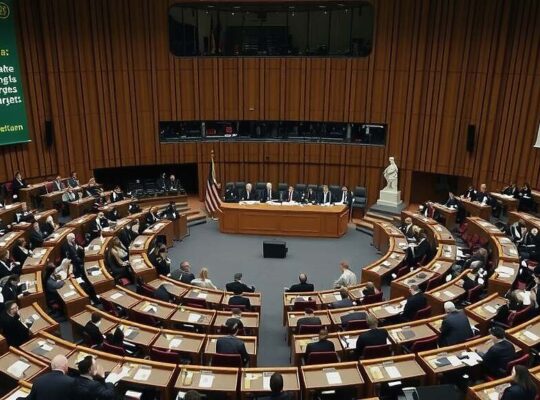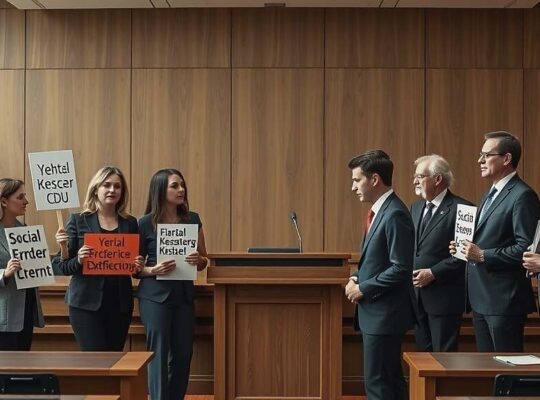A significant internal challenge to Chancellor Scholz’s Social Democratic Party (SPD) is brewing as a faction opposing proposed welfare reforms has successfully triggered a membership petition, signaling a potential rupture within the governing coalition. Former Juso leader Franziska Drohsel, a key figure in the initiative, confirmed to the “Süddeutsche Zeitung” that the group has secured over 4,000 signatures from SPD members – exceeding the one percent threshold required to formally launch the petition. The signatures are slated to be officially presented to party leadership in Berlin on Monday afternoon.
The petition directly contests proposed tightening of eligibility requirements and increased sanctions within the “Bürgergeld” (basic income) system, a policy increasingly championed by Finance Minister Christian Lindner and his Free Democratic Party (FDP) allies. Drohsel stated the group intends to gather further support within the membership base, aiming for the required 20% backing within a three-month window for the initiative to be successful.
The initiative’s emergence highlights the deep ideological divisions within the SPD, particularly concerning social policy and the party’s core identity. Drohsel voiced deep concern regarding the prevailing public discourse surrounding welfare recipients, dismissing arguments portraying them as inherently lazy or responsible for their unemployment status. She refuted claims of widespread benefit abuse, emphasizing that the actual number of sanctions imposed remains comparatively low according to available data.
Critically, Drohsel underscored the party’s perceived failure to actively combat this narrative, accusing the SPD of inadvertently contributing to a stigmatizing and unproductive debate. The initiative leader suggested that the welfare reforms, driven largely by the FDP’s austerity agenda, represent a flawed project destined to damage the party’s standing and potentially destabilize the fragile coalition government. She emphatically stated that problematic policies should be abandoned regardless of the political cost, even if it jeopardizes the existing alliance with the CDU/CSU.
The outcome of this internal struggle promises to be a defining moment for the SPD, potentially reshaping the party’s direction and testing the resilience of Chancellor Scholz’s government.












